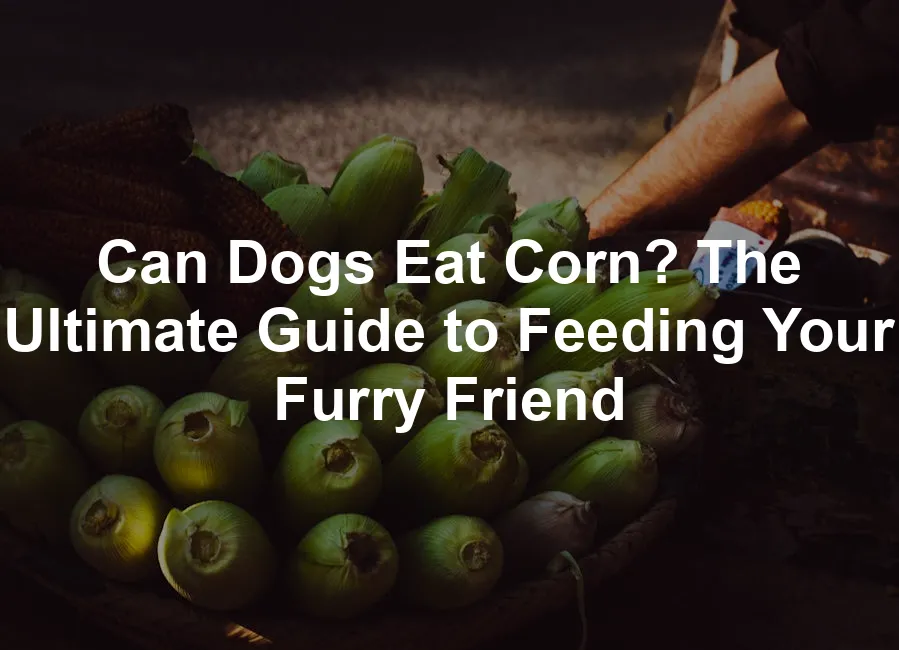Introduction
In the world of doggy dining, corn often pops up as a common question: can dogs eat corn? For many dog owners, sharing a plate of BBQ corn on the cob with their pup can seem harmless, but is it really? Join us as we unpack the delicious, nutritious, and sometimes perilous world of corn for our canine companions. From sweet kernels to buttery popcorn, we’ll answer all your burning questions and ensure that your furry friend’s diet is both safe and satisfying.
Corn is a staple in many kitchens. It’s cheap, versatile, and downright delicious, especially during summer cookouts. The sweet smell wafting from grilled corn often tempts our pups to beg for a taste. But hold your horses! Before sharing that juicy cob with your four-legged friend, let’s consider a few things.
Corn can indeed provide some nutritional benefits to dogs. It’s packed with carbohydrates, healthy fats, protein, and essential vitamins. Sounds great, right? Not so fast! Not all forms of corn are safe for dogs. For instance, corn on the cob poses serious risks, including choking hazards and potential intestinal blockages. Ouch!
So, before you toss your leftover corn to the ground, let’s find out if it’s a treat or a trick in disguise! We’ll help you sort fact from fiction about feeding corn to dogs. This guide will equip you with the knowledge to make informed choices about what to feed your furry friend. Because let’s be honest, nobody wants to spend their weekend at the vet’s office after a corn-related mishap. So, grab a snack for yourself and let’s get started!
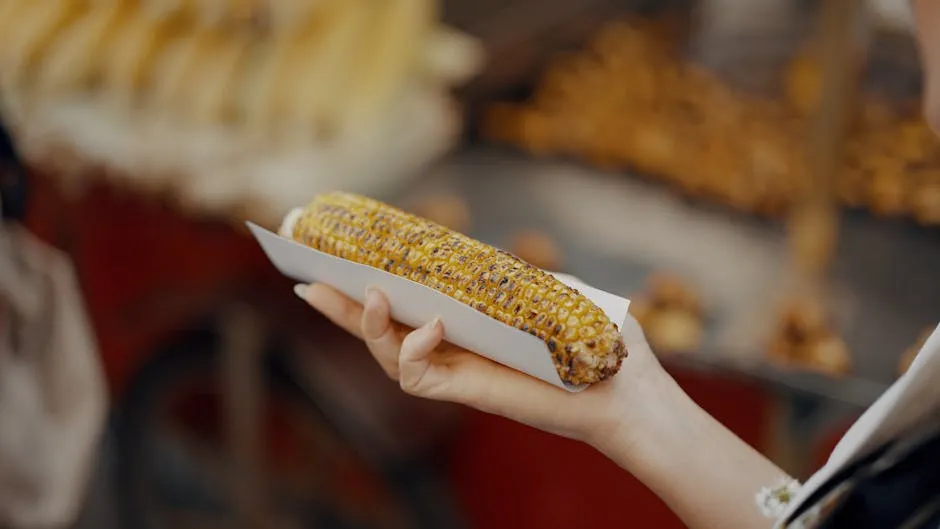
Is Corn Safe for My Dog?
Understanding Corn in Dog Diets
Corn is a common ingredient in many commercial dog foods. Why? It’s cheap and provides essential nutrients. Many pet owners might think of corn as just a filler, but that’s not entirely accurate. Corn packs a punch when it comes to nutrition!
First off, corn is a source of protein, which is crucial for building and repairing tissues. It also contains linoleic acid, an omega-6 fatty acid beneficial for skin and coat health. Fiber is another gem found in corn, aiding in digestion and promoting gut health. Antioxidants? You bet! Corn is rich in antioxidants that help combat free radicals in your dog’s body.
As a carbohydrate source, corn provides energy, making it a valuable part of your dog’s diet. When prepared properly, corn can be a tasty and nutritious treat. Just remember, moderation is key! Treats should make up no more than 10% of your dog’s daily diet. So, while it’s great to share some corn kernels, don’t overdo it.
Speaking of treats, why not try some dog treats with corn? They can be a delightful way to introduce this ingredient into your pup’s diet while ensuring they’re getting a balanced snack!
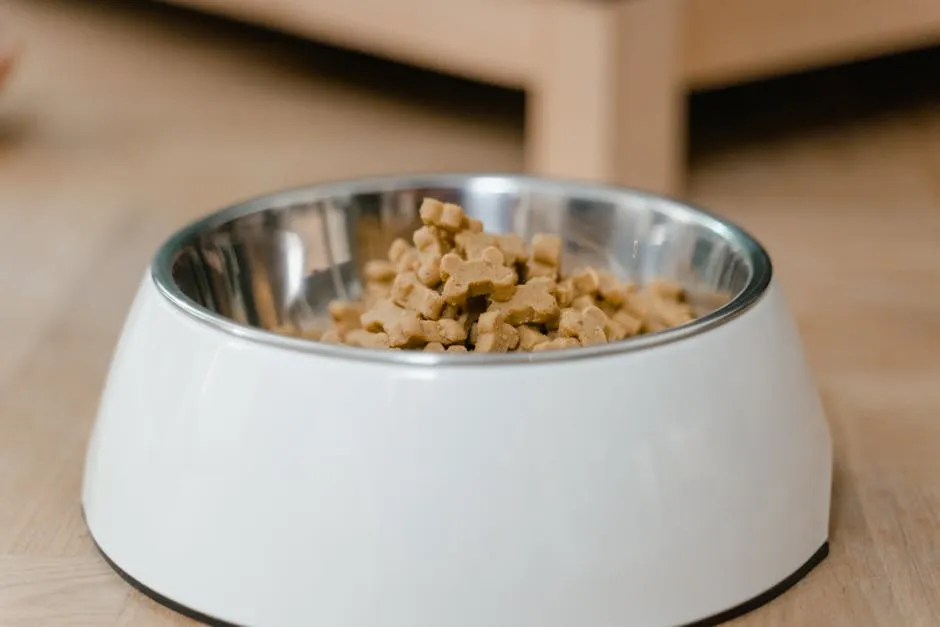
Potential Risks of Feeding Corn
While corn can be beneficial, there are some potential risks to consider. Corn allergies, although rare, can occur in dogs. If your furry friend shows signs like itching, vomiting, or diarrhea after consuming corn, it might be time to consult your veterinarian.
Moderation is essential. Too much corn, or any treat for that matter, can lead to weight gain and an unbalanced diet. It’s vital to ensure that treats don’t exceed that 10% rule.
Now, let’s talk about processed corn products. Corn chips, tortillas, and other processed snacks may seem tempting to share, but they can be harmful. These products are often high in salt and unhealthy additives. Too much sodium can lead to dehydration and other health issues. Stick to plain corn kernels or fresh corn instead!
If you’re looking for a great way to keep your dog healthy, consider dog vitamins with Omega-6. These supplements can help maintain your dog’s skin and coat health, ensuring they look and feel their best!
In a nutshell, corn can be a safe and nutritious addition to your dog’s diet when given in moderation. Keep an eye out for any adverse reactions, and always consult with your vet if you’re uncertain. Treat your dog to some corn, but make sure it’s the good kind!
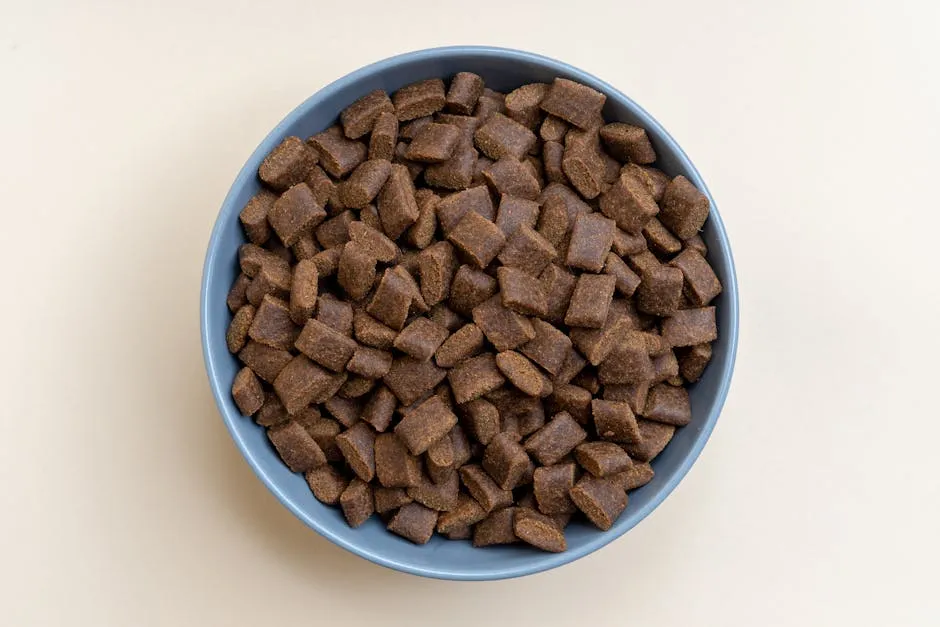
Can Dogs Eat Corn on the Cob?
Dangers of Corn on the Cob
Dogs and corn on the cob? Not a match made in heaven. While our furry friends may eye that delicious corn cob with longing, it hides danger. Let’s break it down!
Corn on the cob may seem like a fun snack for your pup, but it carries significant risks. First, there’s the choking hazard. Dogs, especially smaller breeds, can easily gulp down large pieces. Imagine a corn cob lodged in your dog’s throat! That’s a nightmare scenario no dog owner wants to face.
But the real villain here is gastrointestinal blockage. If your dog swallows a corn cob, it can’t break down in their tummy. Instead, it makes a cozy lodge in their intestines. And trust me, that’s not a vacation spot they want. Symptoms of this unfortunate event can include vomiting, lethargy, and diarrhea. If you see these signs, don’t wait! Get your pooch to the vet faster than you can say “corn on the cob.”
What should you do if your canine companion decides to go for that cob? First, stay calm. Assess the situation. If your dog is showing any troubling signs, it’s time to call your veterinarian immediately. They may ask you to bring your dog in for an examination. In some cases, they might need to do an X-ray or even surgery to remove the cob. Yes, surgery! Not what you planned for a relaxing weekend, right?
If your dog manages to consume a corn cob and seems fine, don’t let your guard down. Monitor them closely for the next 24 hours. Look for any unusual behaviors or signs of distress. If they start acting “off,” it’s better to be safe than sorry—call your vet.
In conclusion, while corn on the cob may be a tasty treat for us, it’s a hard pass for our four-legged friends. The risks far outweigh the benefits. Stick to safe corn options, like kernels, and keep those cobs out of reach! Your pup’s safety is worth every kernel.
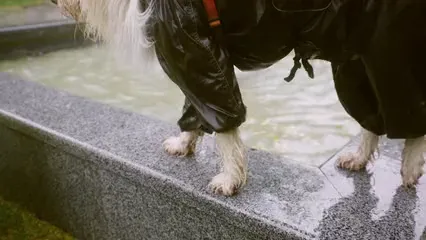
Safe Ways to Feed Corn to Dogs
Feeding corn to dogs can be safe and beneficial when done correctly. Let’s look at the types of corn your furry friend can enjoy, how to prepare them, and what to avoid!
Types of Corn Dogs Can Eat
Corn Kernels
Corn kernels are a fantastic treat for dogs, rich in nutrients. To prepare corn kernels safely, start with fresh or frozen corn. If using frozen corn, thaw it beforehand. Always serve the kernels plain—no butter or salt allowed!
You can steam the kernels lightly to enhance their flavor without compromising safety. Once prepared, let them cool before serving. Corn kernels are not only tasty but also packed with protein, carbohydrates, and antioxidants. They can help keep your dog’s coat shiny and skin healthy. Plus, the fiber in corn promotes healthy digestion. That’s a win-win!
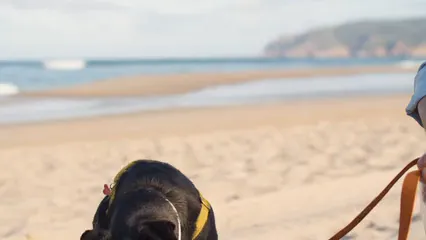
Popcorn
Popcorn can be a delightful snack for dogs, but only if it’s prepared correctly. Stick to plain, air-popped popcorn. Avoid adding butter, salt, or any seasonings. These ingredients can lead to stomach issues or even pancreatitis in dogs.
Popcorn is high in fiber, making it a crunchy and enjoyable treat. Ensure all kernels are popped, as unpopped kernels can be a choking hazard. Serve popcorn in moderation—like a few pieces now and then. This way, your dog will feel like they’re part of movie night without the risk of tummy troubles!
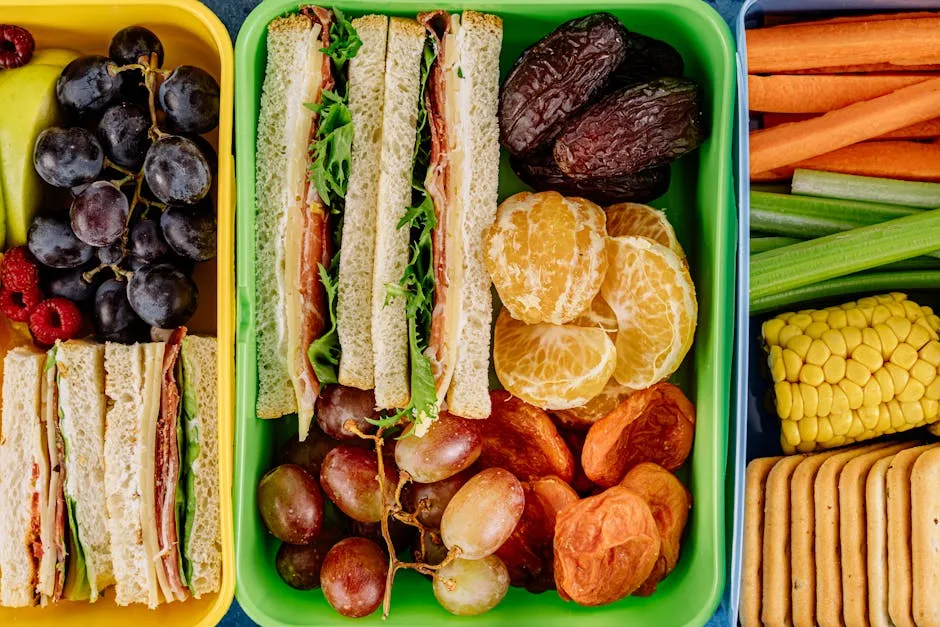
Canned Corn
Canned corn is another option, but proceed with caution. Many canned varieties contain added salt, which isn’t suitable for dogs. If you choose to feed your dog canned corn, look for low-sodium options. Always rinse the corn thoroughly to remove excess sodium.
When serving canned corn, limit the quantity to a small spoonful. This ensures your dog reaps the benefits without overdoing it. Canned corn can be a nice treat, but it shouldn’t be a regular part of your dog’s diet. Moderation is key!
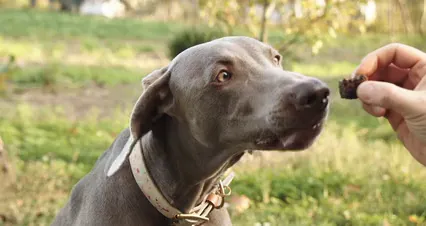
Other Corn Products
Cornmeal and Corn Flour
Can dogs eat cornmeal? Yes, they can! Cornmeal is safe for dogs and can be a helpful ingredient in homemade treats. It provides energy and is easy to digest. Just be sure it’s plain cornmeal without added ingredients.
Corn flour is another safe option. It can be used as a thickener in dog food or treats, providing a gluten-free alternative. However, avoid over-relying on corn-based products. Always balance your dog’s diet with a variety of nutrients.
If you’re feeling adventurous, why not try making some homemade dog treats using cornmeal? Your pup will love the effort, and you’ll enjoy the bonding time!
Introducing corn into your dog’s diet can be enjoyable and healthy when done right. Stick to corn kernels, plain popcorn, and carefully prepared corn products. Keep an eye on portion sizes and remember to avoid any added fats or seasonings. Your canine companion will appreciate the tasty treats while staying healthy!
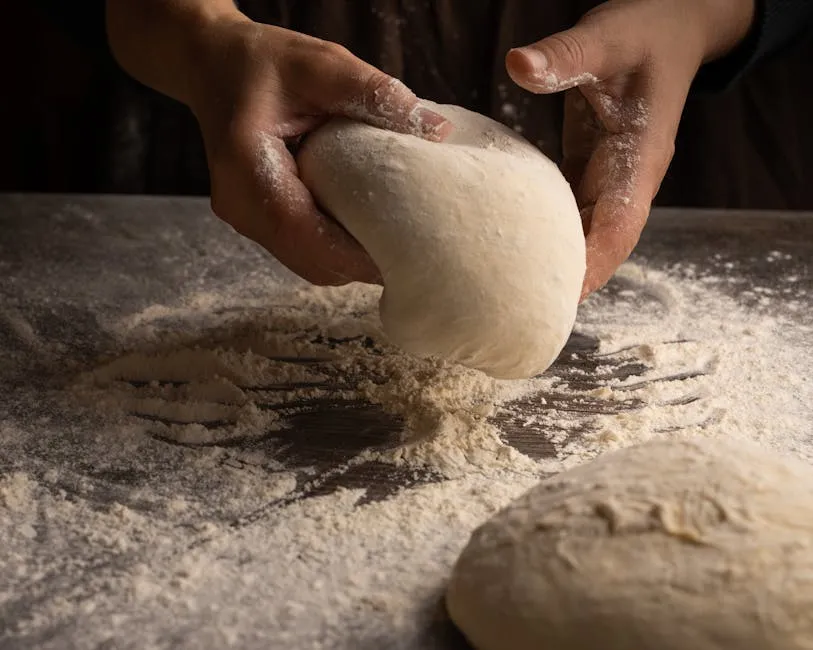
Conclusion
In conclusion, corn can indeed be a safe and nutritious addition to your dog’s diet when prepared and served properly. Corn offers a delightful crunch and a variety of nutrients. It’s packed with protein, carbohydrates, linoleic acid, and antioxidants. Remember to serve corn off the cob—it’s a big deal! Corn on the cob can cause choking hazards and intestinal blockages. Yikes!
Processed corn products like corn chips and tortillas may seem tempting, but they often contain unhealthy additives and excessive salt. So, steer clear! For the best health of your furry friend, always consult your veterinarian before introducing new foods into their diet. They know best what’s right for your pup.
With this newfound knowledge, you can confidently treat your dog to delicious corn. Picture those happy tail wags as you serve them a few safe kernels. Your pup will appreciate the treat, and you’ll enjoy peace of mind knowing you’re feeding them well. Corn can be a delightful addition to their meals, so go ahead and sprinkle in some kernels!
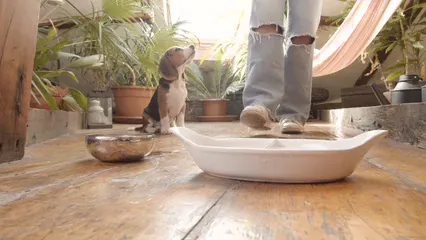
FAQs
Can dogs be allergic to corn?
Yes, dogs can be allergic to corn, but it’s rare. Most dogs enjoy corn without issues. If your dog shows signs like itching, vomiting, or diarrhea after eating corn, it may be allergic. Monitor your pup closely and consult your veterinarian if symptoms persist. They can help determine if it’s corn or something else causing the reaction.
Can I feed my dog corn chips or tortillas?
Corn chips and tortillas are generally not safe for dogs. These processed foods often contain high levels of salt and unhealthy additives. They can upset your dog’s stomach or lead to other health issues. Stick to plain corn kernels or air-popped popcorn for a safe treat instead!
What happens if my dog eats corn on the cob?
Eating corn on the cob can lead to serious risks. Dogs may choke on it or suffer from gastrointestinal blockages. If your dog consumes a corn cob, watch for symptoms like vomiting, lethargy, or diarrhea. If you notice any of these signs, contact your veterinarian immediately. Prompt action can prevent more serious complications.
How much corn can I safely give my dog?
When serving corn, moderation is key. Treats, including corn, should make up no more than 10% of your dog’s daily diet. A small handful of corn kernels is a safe serving size for most dogs. Always monitor your pup’s reaction when introducing any new food.
Are there any benefits to feeding my dog corn?
Absolutely! Corn can provide several nutritional benefits when served appropriately. It’s a good source of protein, carbohydrates, and antioxidants. Corn can also promote healthy skin and coat, thanks to its linoleic acid content. Just remember, moderation is essential to keep your dog’s diet balanced. Enjoy treating your furry friend!
Please let us know what you think about our content by leaving a comment down below!
Thank you for reading till here 🙂
All images from Pexels

